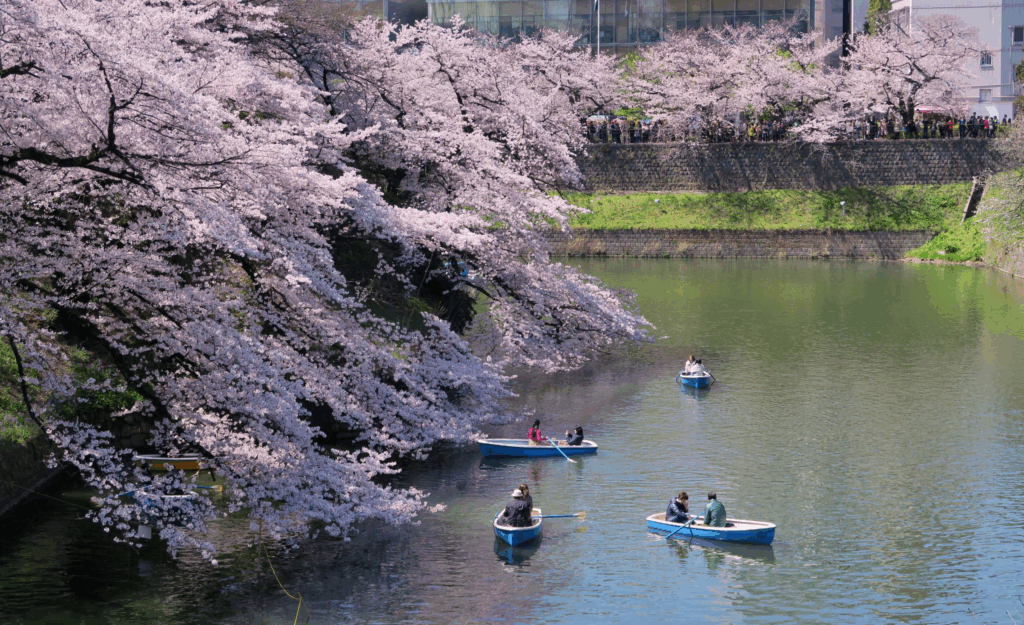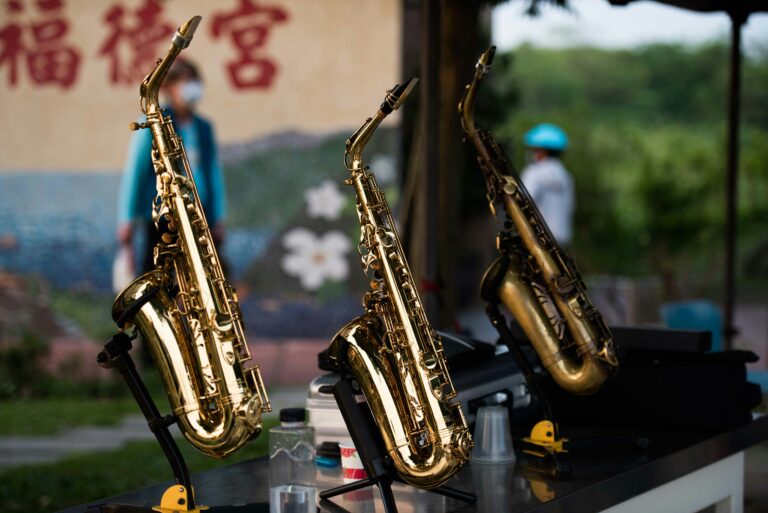Stepping into Tokyo is like embracing a love letter written by the future, brushed with strokes of the past, and sealed with the romance of the present. This metropolis, where tradition and technology coexist, offers an intoxicating brew of experiences that captivate the heart and stir the soul. The exploration of this dynamic city uncovers layers of charm that blur the lines between fantasy and reality. From the neon glimmer of Shibuya to the serene simplicity of the Meiji Shrine, Tokyo is a lover who knows how to surprise. Yet, beyond its skyscrapers and bullet trains, it’s a city deeply rooted in culture and heritage. This journey is set to unveil Tokyo’s modern love – a love that celebrates the futuristic vibrancy of technology while honoring its centuries-old traditions. The interplay between the old and new creates an intriguing romance that is distinctively Tokyo. Brace yourselves for an unforgettable expedition into the heart of Tokyo. We’re about to traverse through buzzing tech-hubs, walk the lanes of history, and lose ourselves in the city’s romantic allure. Tokyo’s tale of love and contrast awaits, unfolding a narrative that is as mesmerizing as the city itself.

Tokyo’s Romantic Aura in the Age of Technology
Tokyo, the capital city of Japan, continues to intrigue the world as a city where dualities not only coexist but thrive. It is a space where skyscrapers tower over ancient shrines, and where robotic innovation stands side by side with centuries-old customs. This fascinating harmony extends into Tokyo’s romantic culture, where the age-old pursuit of love is constantly redefined by technological progress. In this ever-evolving cityscape, the notion of modern love takes on an entirely new dimension—one that is as digital as it is spiritual, as futuristic as it is traditional.
Technology’s Role in Romance
Technology in Tokyo is not simply a tool—it is an integral part of everyday life. In the realm of romance, its presence has revolutionized how people meet, interact, and express affection. In a society where face-to-face confrontation is sometimes avoided due to cultural subtleties, technology offers a new platform for vulnerability and emotional connection.
Mobile apps have become central to how people connect. Dating apps like Pairs, Omiai, and Tinder are widely used, especially among those in their 20s and 30s. These platforms offer filtered searches based on interests, professions, or even astrological signs, enabling users to find partners who align with their personal goals and lifestyles. This makes dating more intentional and customized.
Beyond dating apps, communication through LINE—Japan’s most popular messaging app—plays a pivotal role in relationship building. The app’s use of stickers, emojis, and customizable features allows couples to express feelings in charming and playful ways. Personalized avatars, theme-based chats, and shared calendars have made digital intimacy both engaging and deeply personal.
Artificial Intelligence is also stepping into the dating scene. AI matchmaking services are gaining popularity, especially among professionals. These systems use complex algorithms to evaluate compatibility based on personal history, communication patterns, and emotional responsiveness. These technologies are designed not only to facilitate meeting potential partners but also to advise on how to nurture and sustain a relationship.
Virtual dating has also gained traction, particularly during the pandemic era. Platforms with VR (virtual reality) functions allow people to go on digital dates in immersive environments—from stargazing in Tokyo’s digital dome theaters to sharing tea in a recreated Kyoto teahouse. For many, this is not just a novelty but a preferred alternative to navigating Tokyo’s busy schedules and social expectations.
The Coexistence of Tradition and Technology
Tokyo’s romantic landscape is unique because it does not abandon the old in favor of the new. Instead, it integrates both, creating a love culture that is multidimensional. While dating apps and virtual love experiences flourish, many individuals still find value in traditional matchmaking practices such as omiai.
Omiai, once facilitated strictly through family connections and formal meetings, has now taken a modern form. Professional omiai services now offer digital profiles and video consultations while preserving the core value of intentional matchmaking. Instead of large, pressure-filled meetings, couples are introduced through curated digital dossiers followed by relaxed in-person dates at neutral venues like cafés or gardens.
Many families continue to play a role in the process, albeit with less control and more support. Some services even include family profiles or feedback options, blending familial involvement with modern autonomy. This illustrates how Tokyo balances generational values while keeping pace with modern individualism.
Another element where tradition intersects with modern love is in Japanese holidays and relationship milestones. Valentine’s Day and White Day are celebrated uniquely in Japan. On Valentine’s Day, it is common for women to give chocolate to men, with a clear distinction between giri choco (obligatory chocolates) and honmei choco (true love chocolates). A month later, on White Day, men reciprocate the gesture with gifts or sweets, often symbolizing deeper emotional commitment.
Even with technological advances, these cultural nuances remain deeply rooted. Many couples still engage in these rituals, often sharing photos on social media or documenting the events through digital scrapbooks or personalized couple apps.
AI Dating Services and Social Robotics
As technology advances, Tokyo has embraced innovations that extend even further into the realm of emotional companionship. AI dating services have expanded into areas like emotional coaching, where an AI companion offers personalized advice on how to navigate complex relationship issues. These systems use sentiment analysis to track emotional patterns over time and provide support during breakups or conflicts.
Additionally, social robots like Pepper and Lovot have become part of the conversation on modern companionship. While they are not romantic partners, their presence in Japanese homes as companions highlights Tokyo’s exploration into non-human emotional interaction. Some lonely individuals or people recovering from heartbreak use these devices to rebuild emotional confidence and social skills.
In a city where isolation and social pressure can weigh heavily, these technological solutions offer alternative paths to emotional wellbeing. While they may not replace human relationships, they reflect Tokyo’s broader approach to love—one that is adaptable, supportive, and open to unconventional methods of connection.
The Rise of Virtual Influencers and Digital Partners
In recent years, Tokyo has seen a growing trend in virtual influencers and digital partners. Characters like Hatsune Miku and Kizuna AI are more than just pop culture icons—they are emotional fixtures in the lives of many fans.
Some individuals even develop parasocial relationships with these digital personalities, going so far as to celebrate anniversaries, create fan art, and buy themed merchandise. This phenomenon has raised questions about the nature of modern love and how emotional fulfillment can be experienced in unconventional ways.
Digital relationships, whether through virtual YouTubers or augmented reality partners, are not considered taboo. Instead, they are seen as personal preferences, reflecting the city’s open-minded attitude toward evolving definitions of intimacy and commitment.
The Aesthetic of Romance in a Digital City
Tokyo’s landscape adds another dimension to its unique romantic culture. The city’s aesthetic—gleaming neon lights, ultra-modern design, and contrasting serene spaces—creates a setting where romantic expression is deeply visual and symbolic.
Late-night strolls through Roppongi’s illuminated streets, hand-in-hand visits to digital art exhibits like teamLab Planets, and peaceful moments shared under the cherry blossoms in Ueno Park all reflect the duality of Tokyo’s romantic spirit. Couples often create photo diaries of their experiences, turning love into a curated art form.
In Harajuku, young couples often express their bond through coordinated fashion known as “pair look.” Matching outfits signify unity and are commonly posted on Instagram as visual declarations of love. This trend blurs the line between fashion, romance, and digital storytelling.
Another unique example is the popularity of purikura photo booths, where couples can take stylized photos with added graphics and effects. These small mementos become cherished keepsakes and often line the pages of a couple’s personal scrapbook or digital album.
The Role of Space in Modern Relationships
Tokyo’s compact living spaces and intense work culture have influenced how relationships are formed and sustained. Many couples use “love hotels” not only for intimacy but also as temporary private spaces to escape daily pressures. These themed hotels, often whimsical or futuristic in design, offer short-stay services that allow couples to enjoy uninterrupted time together.
Additionally, the rise of remote work and digital nomadism has made it easier for couples to structure time differently. Rather than being restricted to evenings or weekends, modern pairs in Tokyo are finding more flexibility in how they maintain closeness.
Co-working cafés and hybrid spaces, where people can work side by side while enjoying meals and quality time, are becoming increasingly popular among young urban couples. This blurring of boundaries between professional and personal life reflects Tokyo’s ability to adapt lifestyle trends to deepen emotional intimacy.
The Influence of Pop Culture in Tokyo’s Modern Love
Pop culture, particularly manga and anime, have played a substantial role in shaping Tokyo’s modern love. They often portray romantic themes, providing a form of escapism while also influencing real-life relationships.
Manga and Anime’s Impact on Romance
Many people in Tokyo have grown up reading manga or watching anime, genres that often explore themes of love and romance. This exposure influences how they perceive relationships and romance. For example, the concept of “confession of love”, often dramatized in these media forms, is a significant event in Japanese relationships. In the digital age, manga and anime have also transitioned online. Virtual reality games have become a popular form of entertainment, with some even focusing on romantic themes. These games offer players a chance to experience virtual romance, further blurring the line between fiction and reality in Tokyo’s modern love scene.
Romantic Spots in Tokyo
Tokyo is also home to numerous romantic spots. These locations, a mix of modern structures and historical landmarks, serve as perfect backdrops for love stories.

Modern Love in Traditional Settings
Tokyo is a city filled with ancient temples, historic gardens, and traditional tea houses, all providing a romantic setting. For instance, the Meiji Shrine, a Shinto shrine located in Shibuya, is a popular spot for enmusubi (matchmaking) prayers. Many couples visit this serene location to strengthen their bonds.
Urban Romance
On the other side of the spectrum, Tokyo’s urban landscape also offers romantic locations. Tokyo Tower, for example, is a popular spot for couples. Its observation deck offers a breathtaking view of the city, particularly at night, making it an ideal place for romantic dates.
- Odaiba, an artificial island in Tokyo Bay, is another favorite location for couples. Its futuristic architecture, combined with the beautiful seaside view, provides a romantic ambiance.
- Shinjuku Gyoen National Garden is a tranquil spot in the heart of the city. Its beautiful cherry blossoms during springtime provide a picturesque setting for romance.
The coexistence of tradition and technology in Tokyo creates a unique love culture. Whether it’s through the lens of manga and anime or the blend of traditional customs with modern tech innovations, Tokyo’s modern love story continues to evolve. From its romantic locations to its tech-driven dating practices, the city offers a fascinating look into the future of romance.
Conclusion
In conclusion, Tokyo stands as a vibrant symbol of a harmonious blend between romance, technology, and tradition. The city’s unique romantic charm, epitomized in its glowing cityscapes and tranquil gardens, offers endless opportunities for love to bloom amidst the bustling metropolis. Tokyo’s cutting-edge technology creates an environment that cultivates connections in a way that’s modern, innovative, and uniquely Japanese. At the same time, the city’s deeply-rooted traditions provide a comforting sense of continuity and grounding, reminding us of the enduring nature of love. These elements work in perfect unison, creating a romantic landscape that’s truly one-of-a-kind. Just as Tokyo seamlessly intertwines the past, present, and future, it also intertwines the hearts of those who experience its enchanting charm. Therefore, Unveiling Tokyo’s Modern Love isn’t just about exploring a city, it’s about uncovering a unique perspective on love, painted by the brush strokes of romance, technology, and tradition. So whether you’re single, in a relationship, or simply a lover of all things Japanese, Tokyo’s modern love story is sure to captivate your heart.🌸💖🏙️



